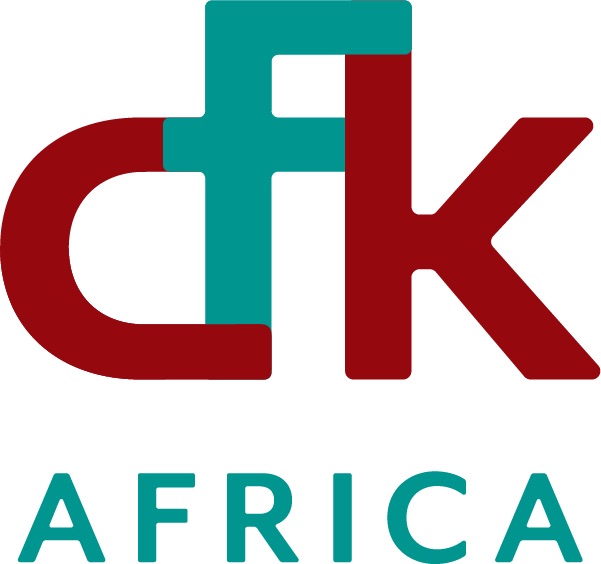
Written by Dorine Ochieng, CFK Africa Project Officer for WASH
As a WASH enthusiast, the opportunity to travel from Kenya to Chapel Hill, NC for the UNC Water and Health Conference to represent CFK Africa was an opportunity I could not miss. The conference, held at the Friday Center, allowed for a gathering of brilliant WASH experts eager to experience and explore the latest research, policies, science, and trends in the field of Water, Sanitation, and Hygiene. From thoughtful panel discussions to plenary sessions and poster presentations, the UNC Water and Health Conference offered the participants a unique opportunity to delve into the unbounded horizons of knowledge.
The UNC Water and Health Conference
The University of North Carolina’s Water and Health Conference serves as a prominent platform where experts, researchers, policymakers, and practitioners converge to share knowledge, exchange ideas, and forge collaborations aimed at addressing the complex issues surrounding water and health. I spent a week learning and sharing experiences in the WASH space. The conference kicked off with a plenary session on Water Sanitation and Hygiene in 2050. This session focused on how both the climate and world at large will be significantly different in the next 25 years. However, the need and responsibility of WASH professionals to provide appropriate and sustained water, sanitation, and hygiene services in a manner that confers dignity to everyone will not change. Building sustained networking systems and community engagement in WASH interventions will improve hygiene and sanitation infrastructure and services even beyond 2050.
The conference also involved side events and poster presentations where WASH experts discussed the research and innovations around WASH, how to improve WASH services in developing countries and fragile contexts, and shared their experience in the implementation of WASH programming.
I had the opportunity to take part in a side event where I presented on CFK Africa’s research and implementation of hygiene improvement programming in informal settlements in Kenya. In collaboration with Washington State University and the CDC, we implemented a project in 11 schools in 4 informal settlements in Nairobi County from 2021-2023 alongside the Kenyan Ministry of Education and Health. The presentation focused on the scope of implementation, baseline evaluation activities which informed the interventions implemented, and the endpoint evaluations conducted to evaluate the impact of the project.
I had many takeaways from the conference for sustainable WASH programming that I will integrate back into my work at CFK Africa, including:

- Implementing community-centric approaches. This includes involving local communities in decision-making processes, understanding their needs, and co-designing interventions that align with cultural norms and preferences.
- The emphasis on data-driven decision-making strengthens monitoring and evaluation systems. Implementing real-time monitoring of water quality, sanitation facilities, and hygiene practices will provide timely insights, allowing for more responsive and effective interventions.
- Working in synergy with other like-minded organizations for the implementation of a more comprehensive and impactful WASH program.
A Journey Through the Heart of UNC Chapel Hill
In addition to my time at the conference, I took time to explore aspects of North Carolina and American culture. I spent my second day in North Carolina exploring the University of North Carolina at Chapel Hill. The historic quad, with its red-brick buildings and towering trees, exuded a sense of academic legacy. I had a walk around the Gillings School of Global Public Health and was impressed to see how the school embraces different cultures by displaying flags of different countries representing the diversity of the students. No visit to the UNC is complete without a stop at the Old Well, an iconic symbol of the university. The North Carolina Botanical Garden offered a serene escape, showcasing the diverse flora of the region.
Culinary Delights on Franklin Street
My evenings in Chapel Hill revealed a culinary scene that surpassed my expectations. Franklin Street beckoned with a diverse array of dining options from Mexican cuisine at Chipotle, to Chinese cuisine, to sandwiches at the Carolina Inn and magnificent boba tea. The meals left a lasting impression of North Carolina’s culinary prowess and I had the chance to try things I had never experienced before.



Exploring Culture and Art at the Ackland Art Museum
Stepping into the galleries, I was immediately struck by the breadth and depth of the museum’s collection. From classic European masterpieces to contemporary works by emerging artists, the Ackland Art Museum at UNC curates an impressive array of pieces. Beyond its permanent collection, the Ackland Art Museum is dynamic in its approach to engaging the community. The museum’s calendar is filled with events, workshops, and lectures, making it a cultural hub that fosters dialogue and learning.
A Journey Through Greensboro
Greensboro is a city that seamlessly blends history, culture, and a vibrant community spirit. A trip to this charming city left me captivated by its unique character and the array of experiences it offers. My visit to the Greensboro Historical Museum was captivating through the annals of time. From the courage of revolutionaries to the resilience of Civil Rights activists and the industrious spirit of a textile town, Greensboro’s history is a mosaic of diverse stories. The museum served as a portal, bridging the gap between generations, and fostering a deep appreciation for the city’s vibrant heritage. As I left the museum, I carried with me not just a wealth of historical knowledge but a profound connection to the spirit of Greensboro and its enduring legacy.
My time in North Carolina was valuable both professionally and personally. I hope to maintain the connections made at the WASH conference to continue to professionally develop in the field and hope to return to North Carolina in the future to see more of what the beautiful state has to offer.
